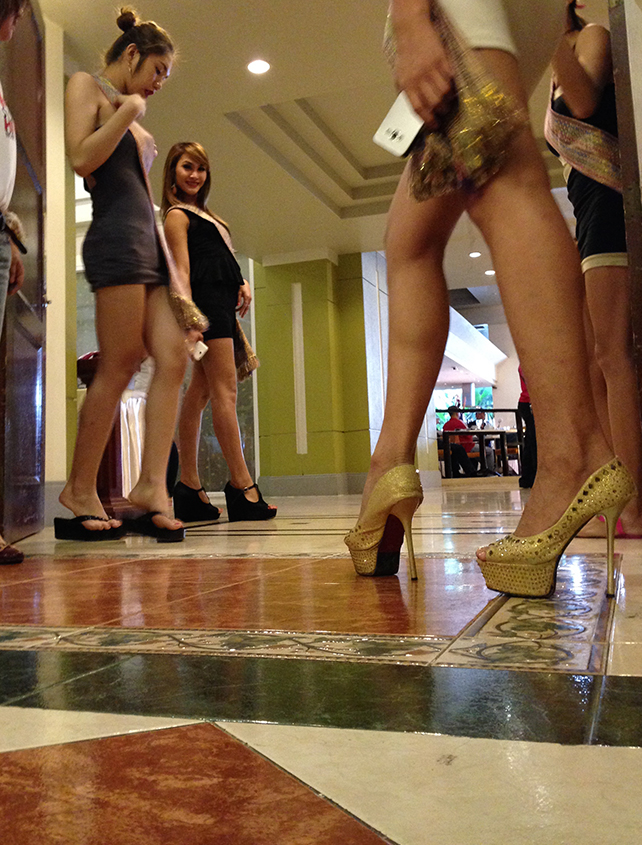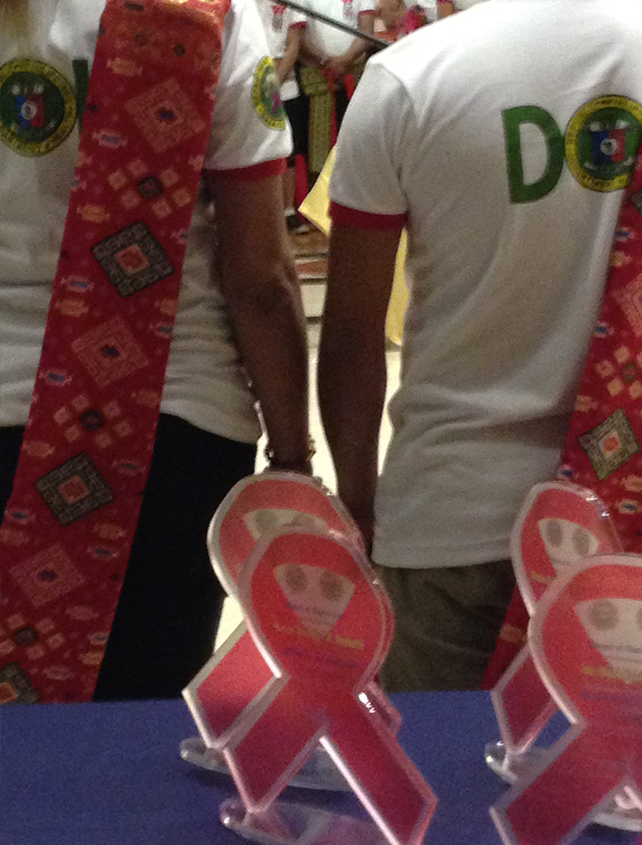DAVAO CITY – As it now registers 40 new HIV infections every month, Davao City held its 1st HIV Summit, which not only highlighted existing efforts being done, but also attempted to find “more creative ways” to curb the spread of the epidemic.
Helmed by the Department of Health in Region XI, the summit was participated by other government organizations (e.g. Philippine National Police and Davao City Health Department), non-government organizations (e.g. Davao City-based HIV organizations ALAGAD and MAAAI), and other stakeholders (e.g. faith-based organizations with efforts on HIV).
In lauding the summit, Sen. Teofisto Guingona III, chairperson of the Senate Blue Ribbon Committee on Health, Peace, Unification and Reconciliation, noted the long-overdue need to act.
“I would have wanted to say with much drama: ‘Now is the time to act’. But that would be wrong. That would be misleading. The time to act was yesterday. In fact, the time to act was many yesterdays ago,” Guingona said.
WORSENING SITUATION
Davao City is, by the way, one of the six cities in the Philippines with high HIV prevalence rates, third only after NCR and Cebu City. The city also has an HIV prevalence rate – at five percent – that is higher than the 3.5 national average.
Since the first case of HIV infection was reported/documented in Davao City in 1984, the number of people living with HIV (PLHIV) in the city as of end-June 2015 has reached 1,569. Of these, 152 progressed to AIDS; and over 70 have died from AIDS-related infection.
Following the national trend, men who have sex with men (MSM) are also the most affected population in Davao City, according to Dr. Josephine Villafuerte, Davao City Health Officer. This is even if the youngest documented case in the city, a 13-year-old, is a girl.
From January to June this year, a total of 240 new HIV cases were recorded in Davao City.
ADDITIONAL SERVICES
Not surprisingly, as noted by Dr. Abdullah B. Dumama Jr., regional director of Department of Health (DOH)-Region XI, current service providers are “already congested, thus the need to expand the services.”
The Southern Philippines Medical Center (SPMC), a treatment hub in Davao City, for instance, serves over 1,300 PLHIVs from southern Mindanao (not just Davao City).
“Already,” according to Dumama, “we are looking at expanding the services.”
DOH-Region XI has already been training additional manpower (e.g. medical technologists and nurses) to “better the proficiency of service providers,” Dumama said. The regional office has also already requested the regional office for additional CD4 machines, which it hopes will reach the city by end-2015.
Dr. Alicia Layug, who heads the treatment hub in Davao City, added that a machine to ascertain the viral load of PLHIV is also already being requested to include this service in the package offered to those in southern Mindanao.
For its part, the DOH in Manila is facing the “challenge of harmonization of services being offered to PLHIV in different treatment hubs.”
Currently, even if PLHIV pay the same PhilHealth premium (pegged at P2,400 per year), the services they receive vary depending on the available services in their treatment hubs. The DOH mandates the “minimum package (to be provided by hubs to PLHIV),” said DOH Usec. Vicente Y. Belizario Jr. “But (health care) is decentralized to local government units, (and) there are LGUs that are more innovative. The challenge is to ensure harmonization, which we will continue to push.”
CONFRONTING STIGMA
With the Davao HIV summit gathering various stakeholders in the fight against HIV, the need to look at HIV as more than a medical issue was also stressed.
Guingona, for his part, expressed his dismay “not in the viciousness with which the HIV attacks the human immune system. What has shocked me in the apparent high level of… ‘immunity’ that our collective conscience is suffering from. I am shocked at our ability to be indifferent; to be in denial; to succumb to apathy in the face of the most cruel scourge in the history of man. What we probably have not realized is that the disease spreads faster in an atmosphere of denial, indifference… and prejudice,” Guingona said.
The summit stressed the need for “authentic dialogue” involving all stakeholders.
“(We need) to see one another as a valuable member of the human community; and.. recognize that we are all part of a human community which must find solutions if we are all to survive,” Guingona ended.

At the 1st HIV Summit in Davao City, trans Davaoenas take an active part as they, too, eye to find solutions to stop the spread of HIV.

“I would have wanted to say with much drama: ‘Now is the time to act’. But that would be wrong. That would be misleading. The time to act was yesterday. In fact, the time to act was many yesterdays ago,” said Sen. Teofisto Guingona III, chairperson of the Senate Blue Ribbon Committee on Health, Peace, Unification and Reconciliation.



































































